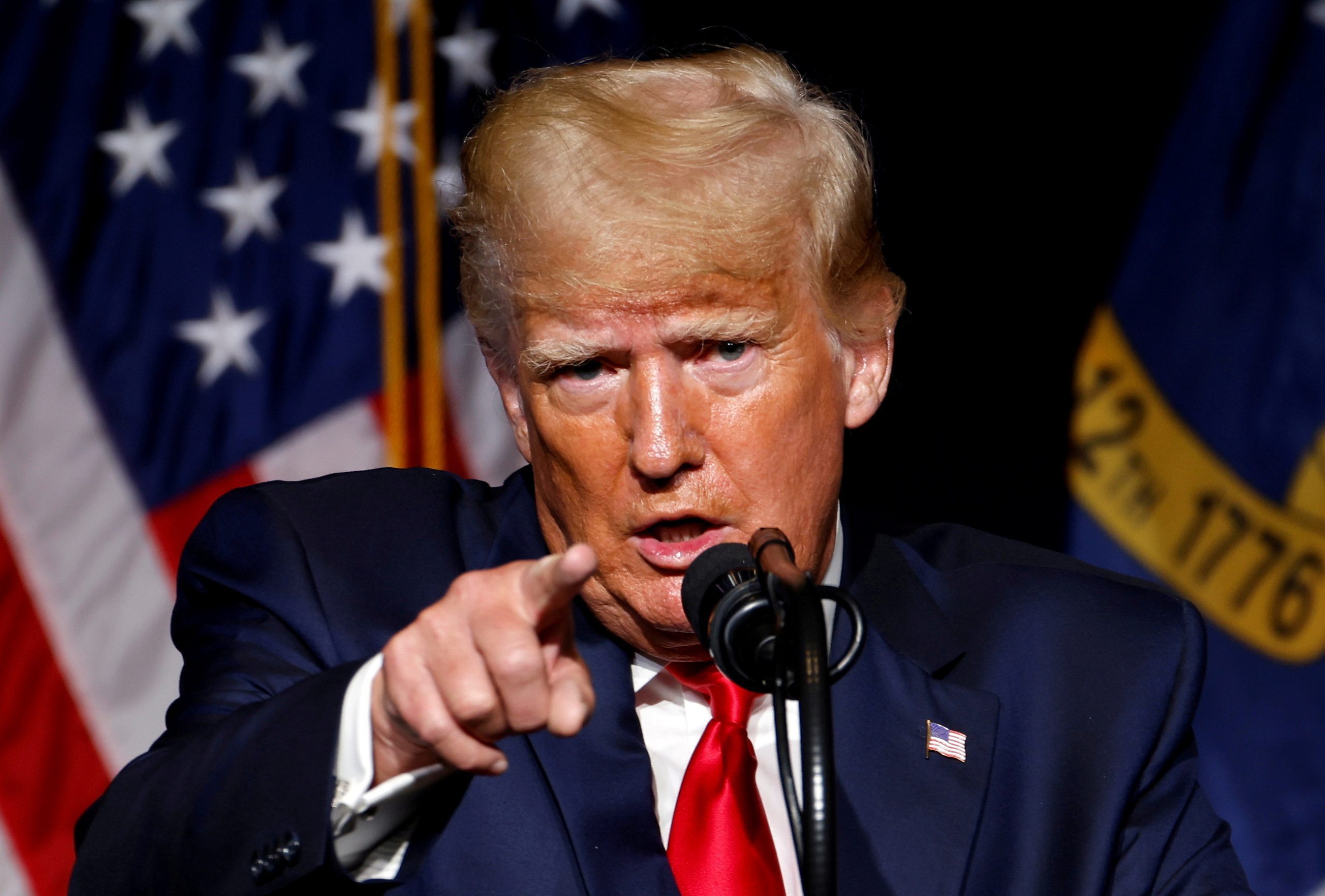Donald Trump clinched a decisive victory in the inaugural 2024 Republican presidential contest in Iowa on Monday, reaffirming his dominance within the party as he pursues an unprecedented third consecutive nomination, setting the stage for a potential rematch with Democratic President Joe Biden.
Edison Research, responsible for projecting election outcomes, declared Trump the winner and identified Florida Governor Ron DeSantis and former U.N. Ambassador Nikki Haley locked in a battle for second place. They aimed to position themselves as the primary alternatives to Trump, who held the presidential office from 2017 to 2021.
Trump’s anticipated victory in Iowa’s Republican contest was poised to be of historic proportions, underscoring his argument that the nomination is essentially a done deal, backed by his substantial lead in national polls, even in the face of four criminal indictments.
With 40% of the expected vote counted, Trump commanded 52.6%, while DeSantis trailed at 20% and Haley at 18.7%, according to Edison. The largest margin of victory in an Iowa Republican caucus was 12.8 percentage points for Bob Dole in 1988.
The question remained whether Trump would surpass the 50% mark, a psychological figure that would further diminish arguments against the inevitability of his nomination.
In a statement, Alex Pfeiffer, spokesperson for the primary super political action committee supporting Trump, asserted, “The people of Iowa sent a clear message tonight: Donald Trump will be the next Republican nominee for President. It’s now time to make him the next President of the United States.”
DeSantis and Haley sought a strong second-place finish to persuade donors and supporters that their challenges to Trump remained viable. DeSantis, in particular, had staked his campaign on Iowa, canvassing all 99 counties. A third-place finish might intensify pressure for him to reconsider his candidacy, especially considering polls showing him trailing behind Trump and Haley in the more moderate state of New Hampshire.
Despite facing life-threatening temperatures, Iowans gathered at over 1,600 locations for the state’s first-in-the-nation caucus, marking the official commencement of the 2024 presidential campaign after months of debates, rallies, and advertisements.
Entrance polls conducted by Edison Research indicated broad support for Trump among caucus-goers. Only one-third believed Trump would be unfit for the presidency if convicted of a crime, while nearly two-thirds questioned the legitimacy of Biden’s victory in the 2020 election, aligning with Trump’s unfounded claims of voter fraud.
Trump, skipping all five Republican debates and avoiding the traditional county-by-county campaigning, aimed to project an air of inevitability around his campaign. “I feel really invigorated and strong for our country,” Trump told Fox News Digital after the network projected his victory.
Unlike a standard election, Iowa’s caucus necessitated voters to assemble in person, battling life-threatening cold, with a wind chill forecasted to reach minus 45 degrees Fahrenheit. Despite the challenging conditions, Edison estimated approximately 130,000 votes, significantly lower than the 2016 record of 187,000.
The cold weather’s impact on turnout, coupled with Trump’s unwavering support base, potentially granted him an advantage. DeSantis and Haley, confident of surpassing expectations, acknowledged the tough competition but refrained from predicting outright victory.
Iowa Democrats did not participate in selecting their presidential nominees on Monday, adhering to a reshuffled nominating calendar prioritizing states with more diverse populations. Their ballots will be cast by mail, and results are expected in March.
While historically pivotal in presidential campaigns, Iowa’s Republican caucus winner has not secured the nomination in the last three competitive contests. The state, once a political battleground, has now shifted to reliably Republican in presidential elections, with registered Republicans outnumbering Democrats.
(With input from Reuters)














